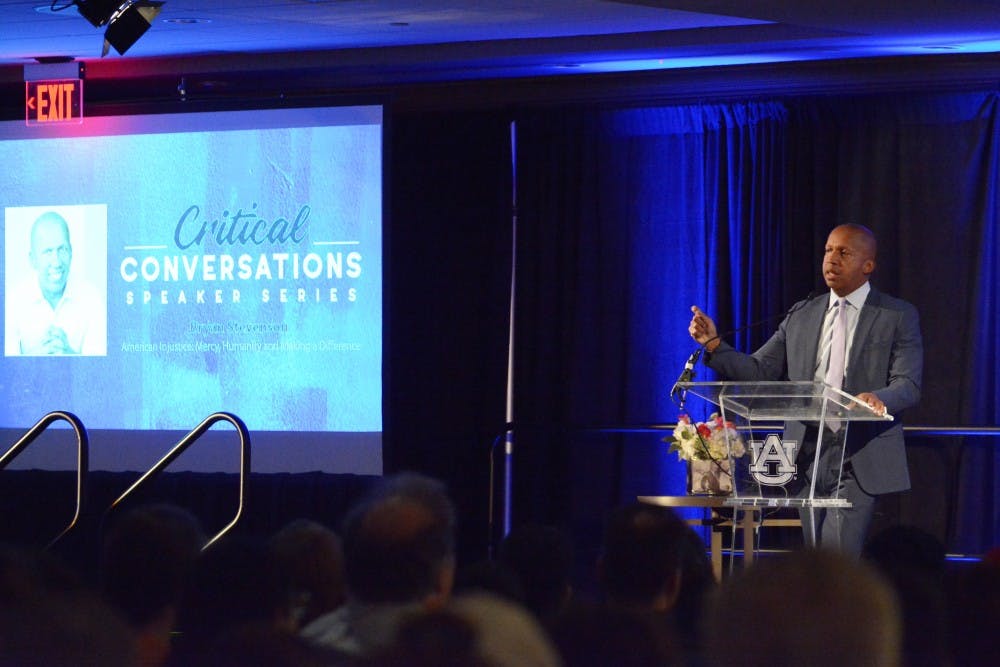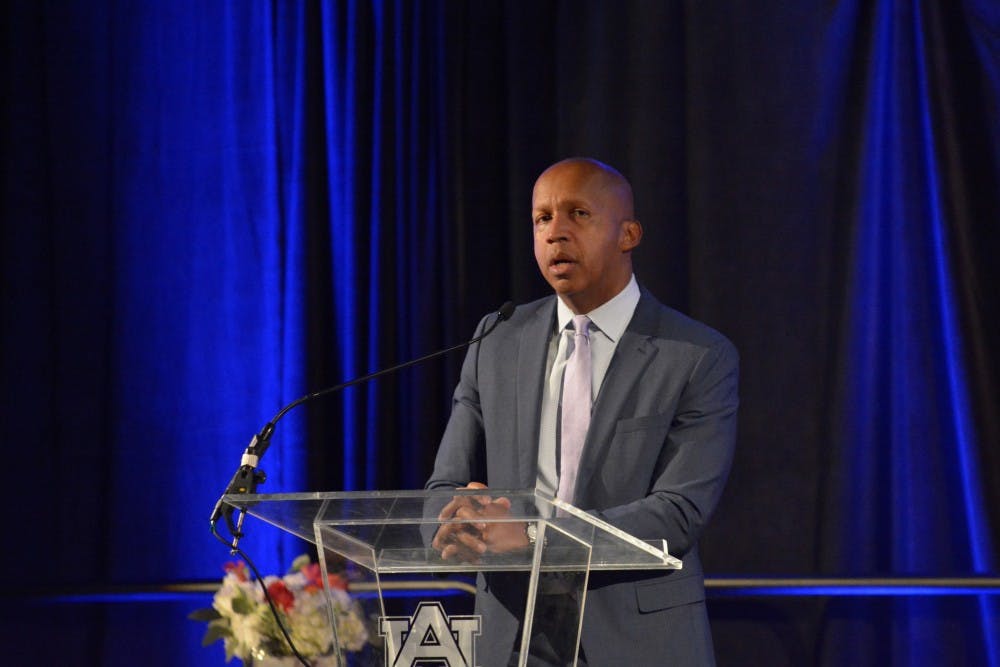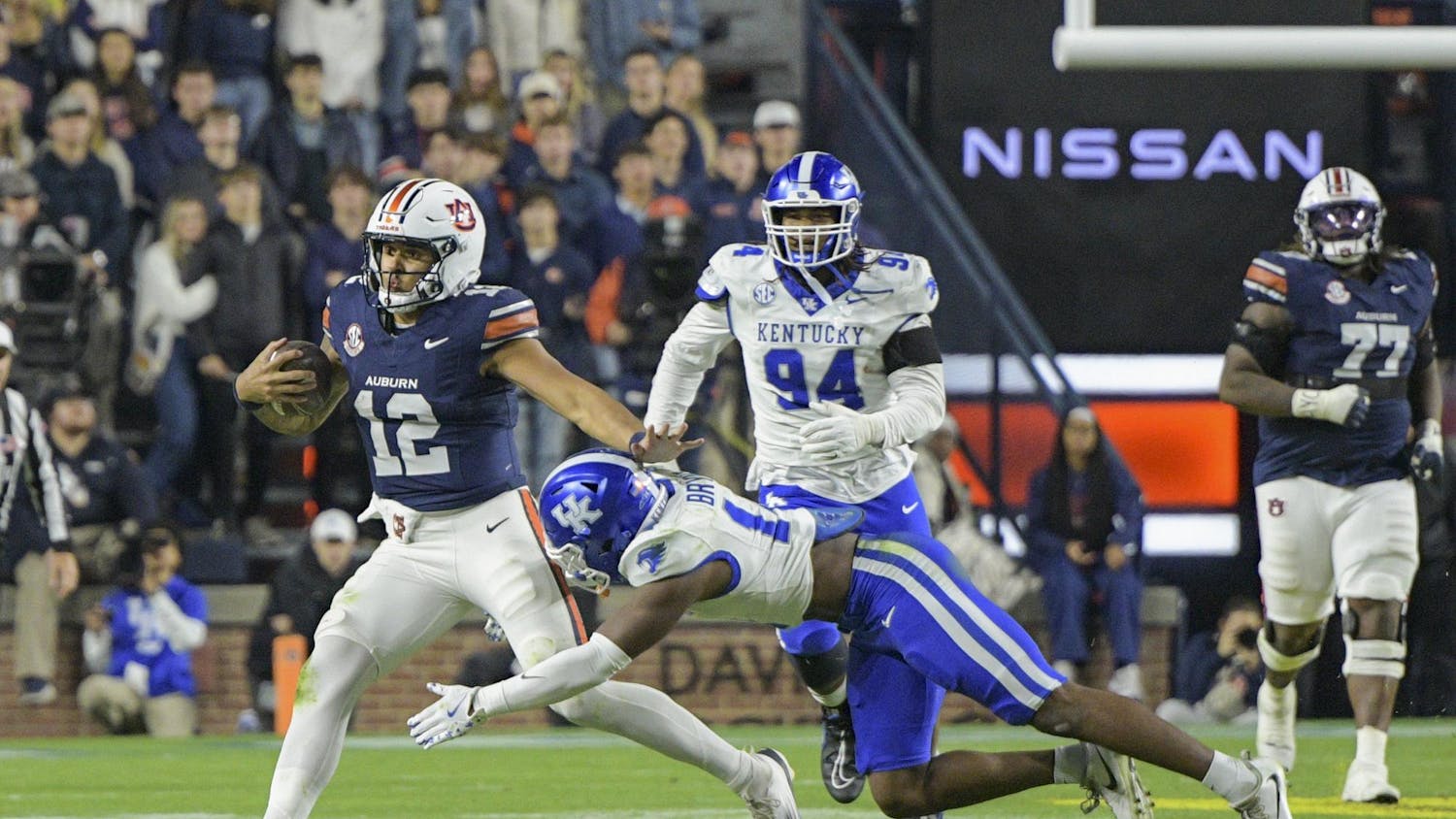Bryan Stevenson, founder and executive director of the Equal Justice Initiative, spoke to students and faculty about the lingering specter of systemic racism in modern America and the importance of remembering that America hasn’t historically been that great.
“I think we have to talk about the fact that we live in a post-genocide society,” Stevenson said.
That idea of remembering the past in order to better the future is what led Stevenson and EJI to build the National Memorial for Peace and Justice, a memorial to the victims of racial terror and lynchings located in Montgomery.
Recognizing the past, Stevenson said, is imperative to move forward.
"Our silence makes us vulnerable," Stevenson said at a Critical Conversations event held as part of Auburn's Martin Luther King Jr. Celebration Week.
"My genuine fear is that they don't remember," Stevenson said. "That we actually haven't created a culture, a nation that requires people to remember the damage we have done to one another as a result of this history of racial inequality."
The Native Americans were slaughtered through disease, war and famine, but Americans justified their actions by creating a narrative of racial difference that said native people were savages and subhuman, Stevenson said.

Attorney, author and activist Bryan Stevenson speaks at Auburn University on Jan. 22, 2019.
The same narrative was crafted to legitimize slavery, he said. Once slavery was abolished, the narrative evolved to justify hangings, bombings and lynchings of the black community.
“The demographic geography of this country was shaped by racial terror,” Stevenson said. “The black people in Cleveland, in Chicago, in Detroit, in Los Angeles, in Oakland did not go to those communities as immigrants looking for new economic opportunities; they went to those communities as refugees in exiles from terror in the American South.”
Systemic and structural racism must be identified to make any progress to solve the issue, he said. For example, structural racism can be seen in private prison systems, police brutality and the war on drugs.
According to Stevenson, there is a commitment in other post-genocide societies like Germany, South Africa and Rawanda to remembering their ugly past. They do it through markers, museums and memorials.
At the same time, Germans are trying to change the current and future narrative so that they are not thought of as Nazis or fascists.
“There are no Adolf Hitler statues in Germany,” Stevenson said. "They want the narrative to change, but in this country, we don't talk about slavery."
Stevenson said Americans generally gloss over the segregationist era, and the Civil Rights Movement is made out to be easier than it was. He said people can’t change the narrative if they don’t address the problem, and they cannot reach liberation if they don’t commit to truth and reconciliation.
Stevenson was clear, though. He's not advocating for punishment. He used the example of confession in the Christian tradition. First, one acknowledges the sin, then asks for forgiveness. People don't pretend that their history is something else, because they know what is on the other side of forgiveness is much better.
"The narrative has to change if we want to be free, and because we have been practicing silence for so long, it can seem hard and scary to begin this conversation about how we overcome the history of racial inequality," Stevenson. "And on the other side of it, I actually think something wondrous is waiting for us."
Stevenson said in order to create a more just society, people must be willing to do things that are uncomfortable and inconvenient — that will have to be a conscious decision.
Those who participated in the Montgomery Bus Boycott sometimes had to walk for hours to get to work every day for a year. He said that kind of struggle is the only thing that could have produced the response people saw.
“We cannot change the world — we cannot create justice if we are unwilling to do inconvenient and uncomfortable things,” Stevenson said, “and be comforted by the fact that what we’re going to have to do is so much less than the people who’ve come before us.”
Stevenson gave Auburn some specific advice.
In response to an audience question about gentrification, Stevenson said institutions like Auburn should be intentional in making space for housing so that locals are not displaced. He said the University must be vocal in saying they don’t want to be a university that gentrifies the community.
"I absolutely think it is incumbent on universities and institutions like Auburn to make a primary commitment to making sure that everybody in this community benefits from the growth that happens here," Stevenson said.
Chip Brownlee, editor-in-chief, contributed to the writing of this piece.
Do you like this story? The Plainsman doesn't accept money from tuition or student fees, and we don't charge a subscription fee. But you can donate to support The Plainsman.





